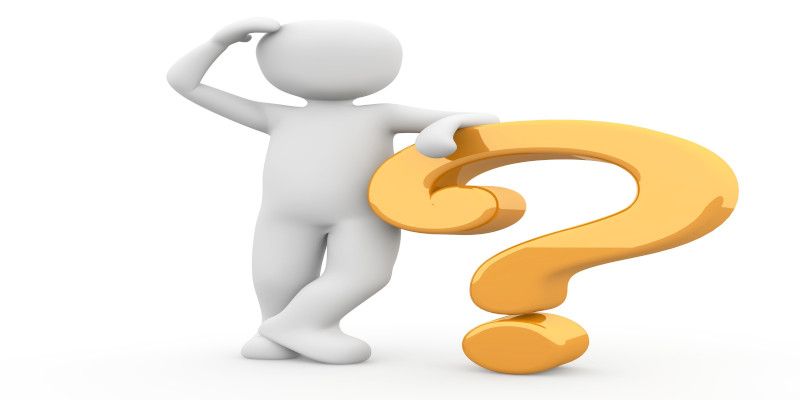Table of Contents
ToggleThere’s good and bad in everyone. Even in the most loving, and caring of people.
We inherently feel the need to categorize information. This is a universal truth for people all over the world. The reason we do this is to make sense of the world, and the individuals living in it.
Yet, things aren’t always just black or white. It’s often the case that the truth lies somewhere in the middle, more akin to the color gray.
The same principle applies to people as well. We’re rarely solely good or evil. Humans are too complicated to be placed in merely one category like that.

You can’t be good and virtuous without the capacity to be bad
Ask yourself the following. How can a person be good if you can’t be bad?
That wouldn’t make a person good. It would just make them harmless. You can’t be virtuous without the ability and capability to be evil.
So the requisite for even being considered a decent person implies the capacity for being bad. To be “evil.”
And that’s in every one of us. Whether we want to admit it, or not.
People are far too complex to be labeled as solely good or bad
Humans are very complex animals. This makes it difficult to categorize us.
We are so complex that we need to water everything down in an attempt to make sense of the world. And even then, we can still only manage to understand a fraction of all the truths this world has to offer.
The personality of an individual is the result of the complex interplay of our genes, environment, and mental state.
Our psychological state consists of our personal views and perceptions of the world. It also includes our dreams and the goals we want to reach in life.
Multiple systems are at work at the same time

We often want to accomplish a goal like becoming competent at playing guitar, for instance. But, for whatever reason, we can’t bring ourselves to practice consistently and start slacking eventually.
We start with good intentions to practice for half an hour each day. But when push comes to shove, part of us knows and wants to practice to get better, but another part of us wants to be lazy and watch YouTube movies of cute cats instead.
Why is it that we experience these conflicting emotions?
The reality is that there are multiple subsystems of our motivation at work at the same time.
Regarding the guitar example, your conscious mind knows that you should practice to become better in the long term. But simultaneously, your unconscious mind is hungering for the immediate and easier short-term reward of watching YouTube videos of cute cats. That typically happens outside our awareness.
Concerning being a good or bad person, you may want to help other people become better, more competent individuals. But you can also have a darker and suppressed system of personality traits that hunger to dominate and control people at the very same time.
Frequently Asked Questions (FAQ)
Is human nature good or bad?

Well, I believe that being human inherently means imperfection.
That’s why I think that human nature is both good and bad. Every one of us has both positive and unfavorable traits. And it’s up to us to decide what attributes we choose to nourish. And what we nurture, will grow and develop.
Furthermore, a trait can become constructive or unsupportive depending on the circumstances. Aggression, for example, can be a beneficial trait when having to defend yourself. But it is considered a poor and negative personality trait if you misuse that hostility to bully others.
So aggressiveness in itself is neither good nor bad. It’s a neutral trait, and our perception of that attribute depends on how, and when you decide to employ it.
Are people inherently good or bad?

People are inherently both good and bad. We all have desirable, and less coveted traits, but which one we display depends on the situation, and what attributes we develop during our existence.
Both sides come to fruition due to the complex interplay of:
- Genetics (nature)
- Sociocultural influences (nurture)
- Psychological aspect
Genes

Our genes are kindly given to us by our parents. That’s something that we can’t control, sometimes to our chagrin. It depends on the “luck of the draw”, as they say.
That inherently means that parts of our personality will naturally come to fruition because we’re hardwired that way. Sure, they’re still moderated by a complex interplay between nature and nurture.
But it does convey that we all have our natural tendencies that are dependent on our brain’s structure and working.
Sociocultural influences
Our sociocultural influences can partially be controlled by choosing a positive environment, and consequently surrounding ourselves with people who genuinely want the best for us.
But we can’t always pick our circumstances. And all of our lives would be wildly different depending on if we were to grow up in poverty, or wealth. In a loving family, or a household void of love.
Psychological aspect

The psychological aspect is the part of ourselves that we have the most personal control over.
The human mind is surprisingly malleable and flexible. In other words, our brain and mind are neuroplastic.
That’s why we can transform our views and perspectives of the world and others to become a more positive and useful individual.
On a side note, do you know how I evaluate which people are genuinely good friends?
I analyze who’s truthfully happy for me when I improve my life, or become more successful at something than them.
If they are genuinely happy for me without feeling the need to brag how fantastic they are, or without feeling the need to put me down, then I know I have “keepers” around me. I also evaluate which people stay around and support me when times are rough. Those are the type of people you want in your life and not those who want to drag you down with negativity.
Is there good in everyone?

Even though it can be hard to see and admit, there’s good in everyone.
Certain people might indeed possess numerous despicable traits, many more than they have positive ones. Yet, even they typically have an admirable constructive attribute.
Is everyone good?
Even though we’ve established by now that there’s good in everyone, not everyone is good.
One, or a few positive traits, don’t make someone a good person, nor do they compensate for the many negative ones that someone might have.
What we nurture grows. As a consequence, we can become better people, but we can also become vile, atrocious individuals. Some folks are so far gone, seemingly without a single trace of goodness left in their heart. That’s usually because they’ve been giving in to, and feeding, their negative traits and desires too much.
Does everyone do bad things?

Can good exist without evil?

Using myself as an example of why there’s good and bad in everyone
Let’s use myself as an example to answer the question, “Is human nature good or bad?”
I can be pretty brave, and assertive, and have a willingness to stand up for myself and other people. (*Cough, slight humblebrag cough.*)
But at the same time, I’m prone to taking those positive traits too far and becoming selfish, overly dominant, and in rare cases, too aggressive.
While I mostly contain and integrate that aggression and selfishness in my personality to make those traits work for me, I would certainly not go as far as to label myself a good person.
Although I do strive to be as good as I can, I know that I have my difficulties and imperfections that I attempt to improve.
Controlling and integrating your shadow side

Personality traits we consider to be poor or negative do oftentimes still have an essential function for our survival when properly controlled. That’s why we need to learn how to control and integrate our shadow side into our being.
Let’s use aggression as an example. Something that’s often regarded as an undesirable trait.
Aggression under our control can manifest itself as assertiveness, and a willingness to stand up for yourself and those dear to you by physically and verbally defending yourself should the need ever arise.
However, uncontrolled aggression can turn into performing harmful and evil deeds such as stealing from others, picking fights with other people, bullying, and trying to dominate those around you.
This goes to show that aggression in itself is not necessarily beneficial or a disadvantage. It’s a neutral attribute.
It is how we manage and use this trait that decides our perception. And this is the case with all personality traits.
Ask yourself this, if aggressiveness is so bad, then how are you going to defend yourself and your family if an intruder breaks into your house and threatens to harm your spouse or kids? I’m willing to bet that the ability and capability for aggression are positive, useful, and necessary in this particular case.
Therefore, we should aim to control and integrate hostility along with the other associated shadow traits into our personality, rather than trying to bury them as deep as humanly possible to keep them hidden from others, and ourselves.
Final note

In my opinion, people are far too complicated to be labeled as solely good or evil entities.
Just because an individual has left-leaning views, for example, doesn’t mean that they necessarily have the same ideas and thoughts about everything else regarding life then other left-leaning people have, and vice versa.
The same is true for considering someone as virtuous and good, or evil. We as human beings all have our favorable and undesirable traits.
Every individual can do both great good, but also to inflict incredible harm.
Ultimately, whatever we decide to nurture will grow. So it’s better to feed your good, constructive traits rather than feed the darker parts of yourself.


1 thought on “Why there’s good and bad in everyone”
Comments are closed.